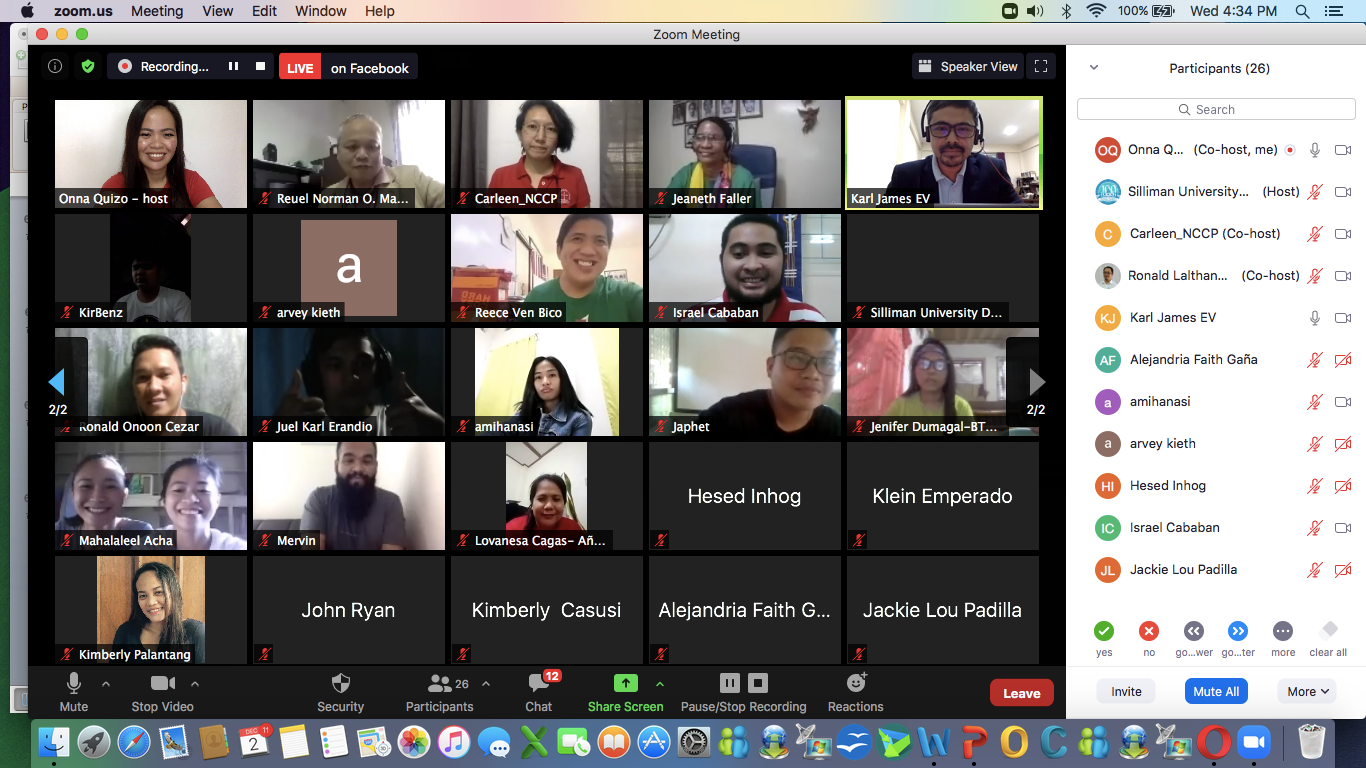
Webinar on HIV/AIDS challenges church workers to respond
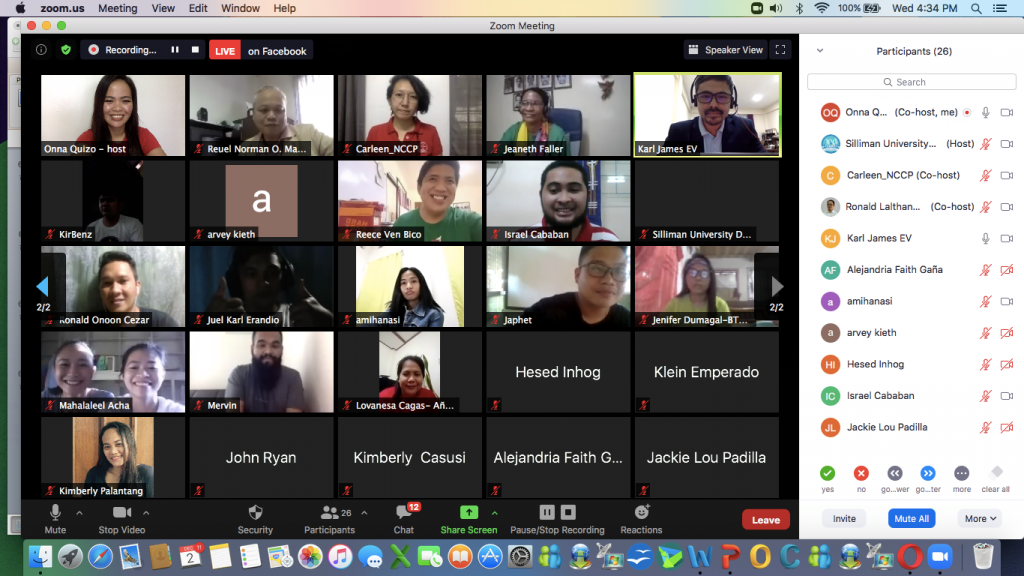
“We are about people and we need to be people-centered and integrate into the public health approach and work on (ending) stigma and marginalization and discrimination because a person is HIV positive. That is what we, as a faith-based organization, can contribute,” said Dr. Ronald Lalthanmawia of the Christian Conference of Asia (CCA) during the World AIDS Day Webinar held December 2 via ZOOM.
#Pakikiisa – a webinar on the plight of people living HIV/AIDS in the worldwide, Asian and local context was organized by the Silliman University Divinity School, the National Council of Churches in the Philippines and in partnership with the Christian Conference of Asia.
During the said webinar, Lalthanmawia, a medical doctor with expertise on HIV medicine and currently serving as coordinator for prophetic diakonia – Action Together in Combating HIV and AIDS in Asia at the Christian Conference of Asia, gave a comprehensive presentation on the global and Asian context on how HIV and AIDS have affected the very lives of people in many countries around the globe. He also shared how faith-based organizations can be able to take part in HIV/AIDS response by way of awareness, by promoting testing and treatment, providing counseling services to People Living with HIV/AIDS, ensuring their quality of life and by intensifying the advocacy on HIV/AIDS in our local churches and in church-related institutions and organizations.
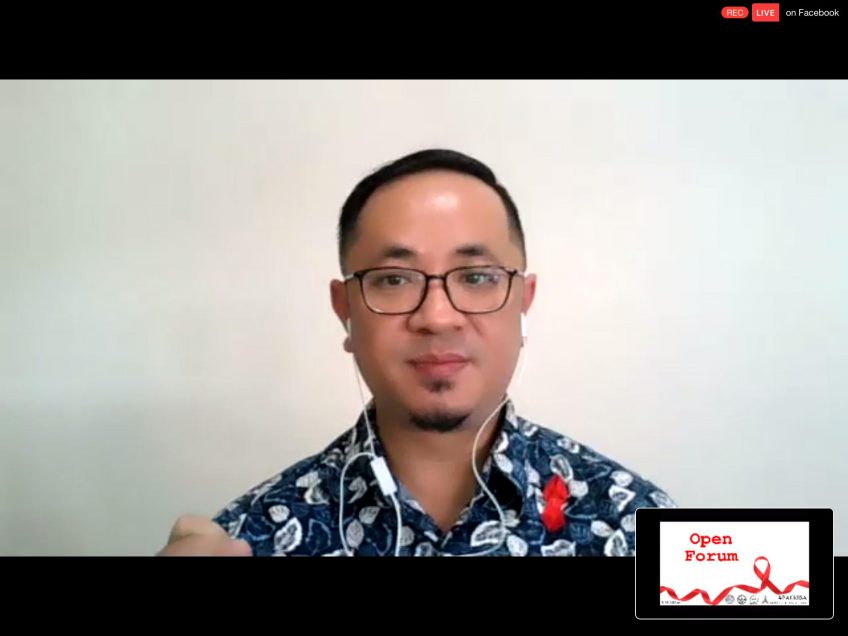
Dr. Ronald Lalthanmawia
On the other hand, Pastor Carleen Nomorosa, a pastor from the United Methodist Church and the current HIV Program Coordinator of the National Council of Churches in the Philippines (NCCP), also shared on the local situation of people living with HIV in the Philippines particularly during this COVID-19 pandemic. Nomorosa pointed out that the lockdown even intensified the difficulties of people living with HIV with the closing of community-based clinics as well as the treatment centers where they normally avail of the antiretroviral (ARV) medicines.
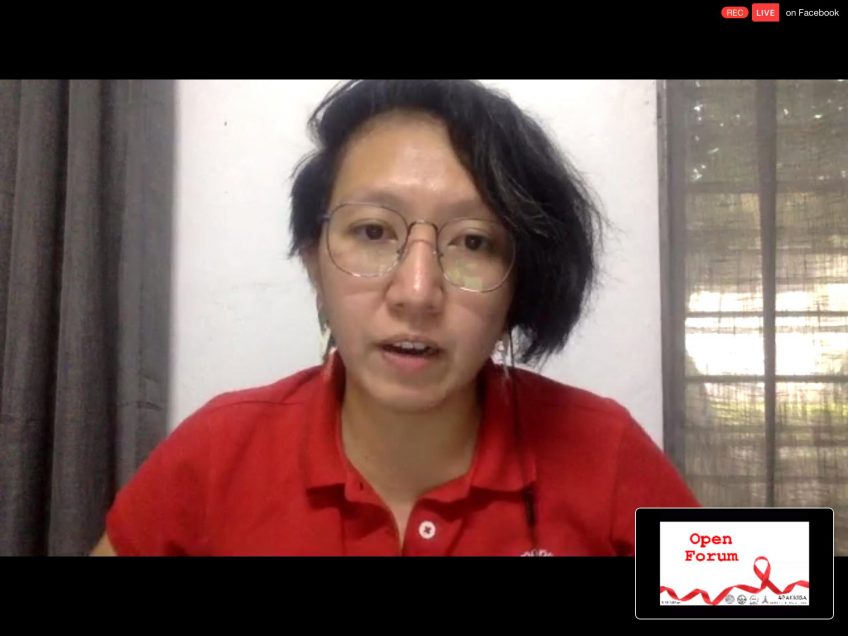
Pastor Carleen Nomorosa
Despite the situation, the NCCP through its HIV Program and its other partner organizations have found a way to respond to the needs of the people living with HIV and AIDS during this pandemic through mobilizing specialized deliveries of food packs and ARV treatment medicines.
And in line with the World AIDS Day 2020 theme, “Global Solidarity, Shared Responsibility,” she left a challenge for the seminary students and the current church workers to unroof churches and institutions. Based on the story found in Mark 2:1-12 about a paralytic who was brought by friends to a house where Jesus was staying, Nomorosa shared that as a church, “we must “embrace an alternative consciousness, revolutionize our ministry and advocacy to people living with HIV.”
She then added, “Our challenge today, is to allow our imaginations our discomforts and our distress, to be confronted by the faith of the paralytic’s friends and the paralytic himself and look beyond what at first appears to be impossible obstacles and carve out fresh openings for human liberation and deliverance.”
Nomorosa also called upon the participants to address the disparity and injustices committed against people who are living with HIV/AIDS for 40 years now, since the campaign was launched in 1980, in order to have “a more genuine and holistic church response as people of faith.”
Meanwhile, Dr. Karl James Villarmea, an associate professor at the SU Divinity School, provided a comprehensive synthesis of the input given by Lalthanmawia and Nomorosa and focused it on two key words: Solidarity and Responsibility.
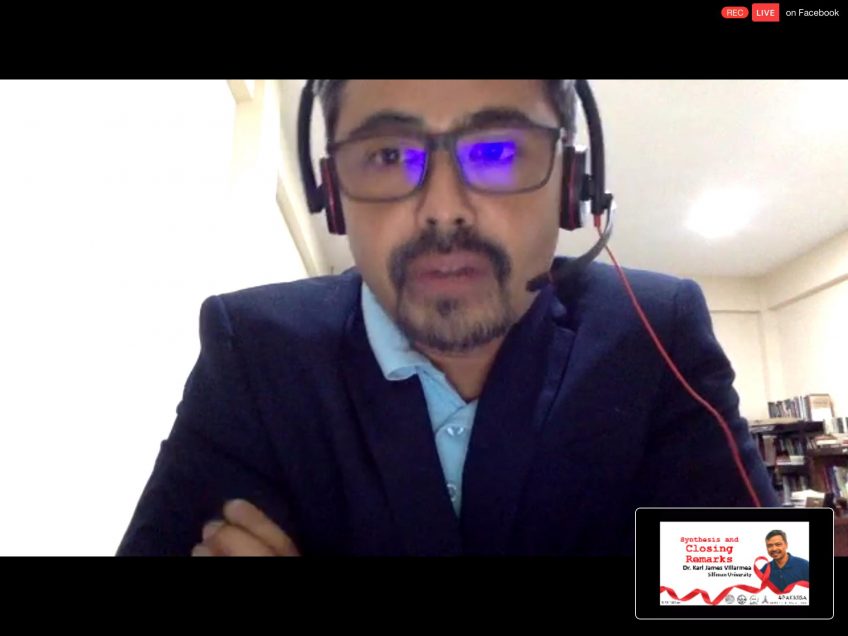
Dr. Karl James Villarmea
Villarmea shared that highlighting those points signifies “an important paradigm shift – from the sociology of numbers to the depth of our spirituality” and “it signals a different emphasis and focus. Yes, for us church people, people are not just numbers. Each one of us like you and me, are irreplaceable, distinctively unique, bearers of divine imprint. Life is not a statistic or a program. Life is a gift from God.”
He emphasized the point that people are brothers and sisters bonded in the life-giving breath of God, sharing a collective life and the Christian response to this AIDS pandemic, is an invitation to deepen our spirituality in our solidarity with those who have acquired HIV and AIDS.
Villarmea boldly described solidarity as a form and way of living. This is discipleship to the mission of the Messiah despite the failure of the church’s leadership related to the addressing of this issue on HIV and AIDS and its rising cases in our communities.
He also pointed out a few remedies to address the issues: to hold safe and healthy conversations about human sexuality in our congregations and to produce Bible Study and Sunday School materials, train the youth and young adults to be proactive leaders and responsible to human sexuality and for pastors to think theologically about human sexuality.
“This is our vocation as Christians, to establish just and loving relationships through our sexuality in whatever ways and forms. Therefore, sexuality is a central part of this vocation. Think about this. Sexuality is a vocation,” shared Villarmea.
For him, “The stigma on HIV and AIDS, dwelling in our churches, is actually an indication of an unjust social order and is a symptom of our hetero-patriarchal order.”
To end his synthesis, he narrated the story of his friend pastor who died of complications due to HIV/AIDS, years ago. Upon hearing some blames uttered by fellow church workers, he courageously rebuked them by saying, “The church must confess and ask forgiveness [for] blaming the person who is living and those who died of HIV/AIDS. It is the church’s fault and ask for forgiveness, [we] must admit our complicity for our sin of homophobia that took many lives already. And sadly, tragically.”
He then uttered a monologue on behalf of his friend who died, “May he forgive us for our silence and complicity. We were disrespectful and we were disgusted by your choices, lifestyle or otherwise. But you, you were kind and remained faithful to the Gospel, nevertheless. You even demonstrated to us how we can remain faithful to the vocation many of us in this platform are called [to do], even if many of us here and others, cast their loathing eyes upon you. In your name, may you find us nevertheless faithful…And so my friends, I leave you this story in his name; that nevertheless, and know deep down in his heart, this he would say to all of us: Let us be faithful. Amen.”
Also present during the webinar was NCCP General Secretary, Bishop Reuel Norman Marigza who gave his opening remarks centered on the ecumenical organization’s pursuits in awareness campaigns for HIV/AIDS prevention and on its continued prophetic witness in rallying for easy access to the ARV medicines. He also left a short theological note on following the law of Christ, which is love, our love for the vulnerable and those whom our society would call unlovable.
Meanwhile, Rev. Dr. Jeaneth Harris-Faller, during her welcome remarks, emphasized the importance of holding the said webinar as an expression of solidarity and to awaken church workers on the issue of HIV/AIDS. She expressed high hopes that through the webinar, the church workers and current seminary students may be inspired and empowered to be faithful healers and responsible stewards of the whole inhabited earth.
To ensure the order of the program flow, Ms. Onna Rhea C. Quizo, a pastor’s kid and currently working as an instructor at Silliman University, served as host for the webinar.
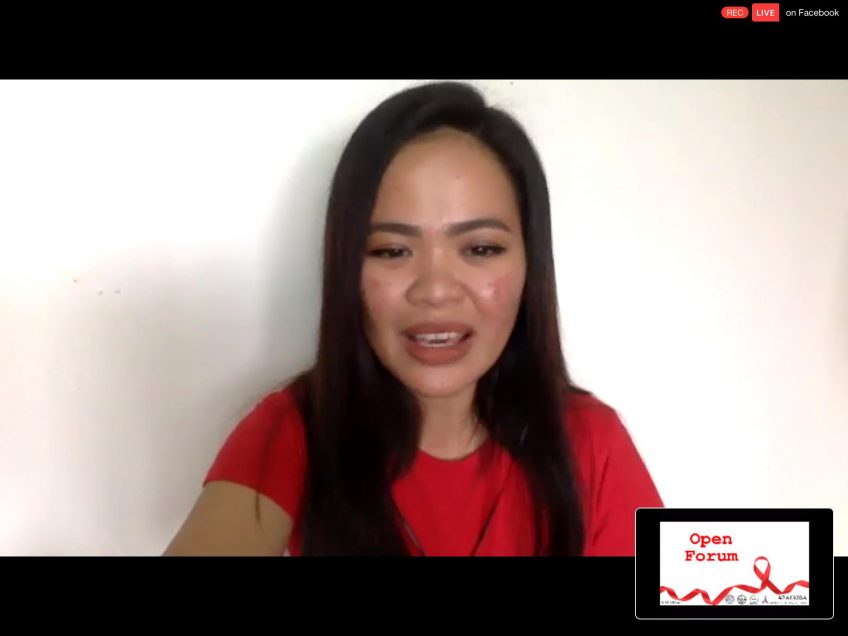
Ms. Onna Rhea C. Quizo
#Pakikiisa (the webinar) was organized as an expression of solidarity as the Divinity School Koinonia marked the World AIDS Day held annually every December 1. Aside from that, the Chapel Service held last December 2 was also focused on the commemoration of World AIDS Day and the International Day of Persons with Disability, celebrated every December 3. The said worship service can be as well accessed through this link: https://www.facebook.com/watch/live/?v=707460946863235&ref=watch_permalink
For those who wish to access the webinar (#Pakikiisa) may opt to click this link: https://www.facebook.com/watch/live/?v=3875359642525194&ref=watch_permalink


